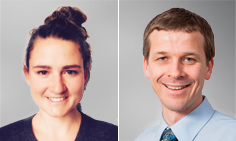BY the beginning of next month the University of Melbourne’s Parkville campus will finally become entirely tobacco-smoke free.
The university implemented its tobacco-free policy on 4 February 2014 to coincide with World Cancer Day, and since then has been phasing in its smoke-free policy.
In April 2014, a meeting of the vice-chancellors of all nine Victorian universities unanimously supported the initiative to create smoke-free campuses.
The initiative involves implementing policy that aims to denormalise smoking by, for example, banning sales of tobacco products on campus, limiting smoking to designated areas and making smoking cessation services and support available through the campus medical service.
Ultimately, it is hoped this initiative will reduce harm from second-hand smoke, discourage people from smoking and promote healthier environments for students, staff and visitors.
This cross-university initiative is in line with Australia’s position as a leader in tobacco control and is supported by the AMA.
Individual doctors can, and do, support the move by ensuring adequate support and counselling is freely available to those most affected by smoke-free policies —students.
University students are particularly vulnerable to commencing smoking, or transitioning from social smokers to regular users. Tobacco companies target young people when advertising and promoting their products.
The staged manner of the smoke-free campus initiative has included widespread community consultation.
The final stage of the phasing in of a smoke-free Parkville campus at the University of Melbourne in March 2016 will be to remove all designated smoking areas. A smoker will have to leave the campus to light up — a far cry from a century ago where a pipe-smoking professor was stereotypical.
It’s also a distinct shift from the university student stereotype of a libertarian who might just as well start smoking (dope) to challenge such limitation of freedoms.
To date, Victorian universities have had little opposition to this policy and have avoided controversy, in contrast with the transition to smoke-free prisons in Victoria.
The evidence behind smoke-free campuses is strong, with several recent studies finding a link between smoke-free policies and reductions in campus smoking prevalence, second-hand smoke exposure and student perceptions of peer-smoking prevalence, as well as an increase in social norms favouring smoke-free environments.
A recent survey conducted by the Nossal Institute for Global Health at the University of Melbourne, yet to be published, revealed 75% smokers interviewed want to quit. An encouraging finding was widespread support for the smoke-free policy, with near unanimous support from both smokers and non-smokers.
The survey also showed that 81% smokers wanted support from the university to support their quit attempt, with the most common support requested being peer support and nicotine replacement therapy.
Doctors who regularly see university students should be emboldened by these results showing smokers seemingly want to quit and welcome help in doing so.
Since the University of Melbourne initiative started, 57% of the surveyed smokers have reported that the smoke-free policy disrupts their routine, with more than 30% cutting down their cigarette consumption. There were a number of people who said the smoke-free policy had prompted them to quit.
Australia continues to be a leader in tobacco control, with the numbers of smokers decreasing annually.
As measures aimed at denormalisation of smoking are implemented, it is hoped smoking rates will decrease to negligible levels, so that our youth and university students will be able to enjoy tobacco-free lives.
Smoking cessation support is available to staff and students at all Victorian universities, and smokers should be encouraged to contact Quitline (13 78 48) in all states for support at any time.
Nicole Hughes is a research assistant at the Nossal Institute for Global Health at the University of Melbourne. Dr Nathan Grills is a public health physician with the Nossal Institute for Global Health.
The authors acknowledge Leila Bell for support with conducting surveys and statistical analysis.

 more_vert
more_vert